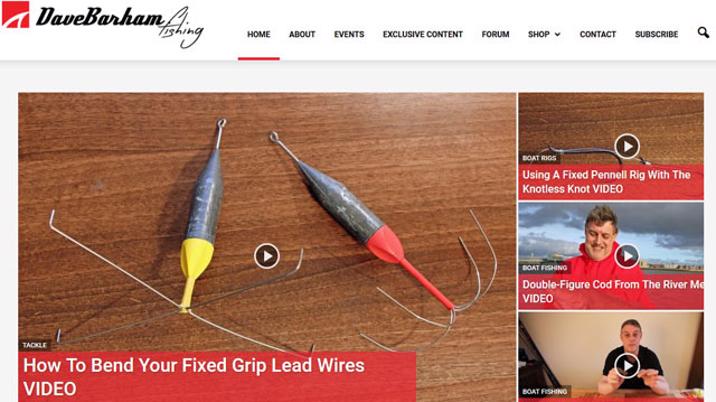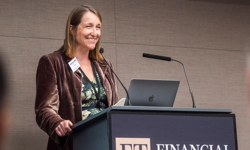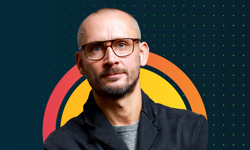
I’m sat on the sofa in my living room contemplating life. It’s 10pm, the girlfriend has gone to bed, the cat is asleep in its basket and the hatchet fish are idling their way back and forth through their newly cleaned tank behind me.
I contemplate things in the way you do when you’re 44 years old, half way through your career and, if you’re fortunate, half way through your existence on the planet.
People say you shouldn’t look back, but sometimes I can’t help reflecting on the past. I guess most of us do, right? As such, my mind wanders back almost precisely ten years to the day, to April 2007, when I stopped being a journalist at David Hall Publishing and moved into the murky world of publishing in deepest, darkest London.
Somewhat crazily, I upped sticks from my comfortable life in the Midlands, took a ma-hoo-sive £20k pay cut and relocated from one of the cheapest areas in the UK in terms of cost of living, to a shared house in the not-so-cheap Hampton Court.
Yikes.
From having my own three-bedroom house, loads of space, disposable income to burn and a life of ease, suddenly I was living in a small bedroom that overlooked a Shell garage near the Thames-side entrance to Bushy Park. But it didn’t matter, as I was working for Haymarket Media, one of UK publishing’s bigger players, learning a new trade on one of the world’s oldest magazines – Autocar.
I wanted to learn how to run a publishing business and everything that came with it. Most importantly of all, I wanted to learn about website management and digital strategy (remember, the iPhone 3 had only just been released some days earlier. Most people didn’t know their apps from their elbows!)
Plus, I saw the move to Haymarket as a conduit to one day establishing my own publishing company – a company that would put digital first and make me enough money to comfortably retire by the time I was 60.
Fast-forward a decade and I’m yet to launch my own media empire. And I’m a long, long way from comfortably retiring. Okay, I’ve successfully launched a profitable £2m digital business in the UK for some German family or other, which is nice, but it’s not going to ensure me a life of luxury as old age slides into view.
However, two of my old colleagues have taken the plunge in recent times and set up their own media businesses. The first, Nick Marlow, is a former editor of B2B title Tackle Trade World (aimed at the global sport fishing market). He’s just taken on ownership of sister B2B title Tackle & Guns, having acquired it off the recently bought-out David Hall Publishing.
The second is the former editor of Total Sea Fishing magazine, Dave Barham, who launched his own digital content business a few months back, www.davebarhamfishing.com. His model is simple – charge users £4.99 to join, then take recurring payments of the same amount each month. Plus, he has his own little e-commerce section where you can buy a fishing rod from his own range.
The growth of micro
Big publishers might scoff at this, but I don’t. I think we’re going to see more of this kind of thing happening – let’s call it micro-publishing – and I think it’s going to fragment the specialist digital content market significantly in the years to come (you can see clear parallels in the alcohol industry, where micro-gin distilleries and micro-breweries conjuring up the most amazing ales are suddenly in-vogue, though I haven’t a clue as to the impact they’ve had on the Carlsbergs of this world).
Now, Dave is one of the last people I would have expected to take the plunge into an area (paid digital content) that big publishers have struggled with before. But more power to his elbow. He’s a genuinely lovely fella and deserves for it to be successful. And think about it – it makes sense. Maybe, just maybe, it could work.
While I personally think he’s over-priced his model, and while the UX on his site could be a tad smoother, he doesn’t actually need that many paying subscribers to make a real go of it.
What he will find quickly, however, is that he’ll need to be finding an awful lot of top-quality video content bespoke to him, to serve people, if he’s to grow and keep his subscriber base. The site will need updates on a daily basis. Plus, he’ll need to offer significant member benefits over and above content alone, such as discounts on fishing tackle, bait, events, that kind of thing.
I also hope he’s got his database and marketing strategies nailed down, because he’s going to need to own his audience and communicate effectively with it through all channels to maximise the amount of money he can get from it.
In his favour, technology is reaching a level now where it’s relatively easy, and cheap, to establish a paywall on a website, take payments from people quickly and easily and serve them bespoke specialist content formatted perfectly for desktop, tablet and mobile.
Dave’s overheads aren’t going to be huge. I’m guessing he’ll only need 1000 paying subscribers a month to make a little profit – enough to ensure he can travel the country and the world getting content, which, of course, he can now upload from virtually anywhere, as high-speed Wi-Fi connections spread to more remote areas. And the more his site grows, the more likely it will become that his expenses will get paid by companies eager for exposure – maybe sponsorship and advertising opportunities will come to the fore soon. And, of course, many of his expenses will be tax-deductible.
What’s not to like? Okay, it’ll be very hard work. Getting those 1,000 subscribers will be bloody hard. Harder than he’ll have realised. And I doubt he’ll ever be a millionaire from it. But the point is he’s doing it – and in the process, he might just make a living doing precisely what he wants to do, what he loves.
The strategic ramifications for bigger publishers, should digital micro-publishing grow as a fad, are obvious. Dave is a contributor to Sea Angler magazine. Now, you could argue he’s a competitor to it. It will be interesting to see how this plays out – both in the case of Dave’s business and on a bigger stage, as individuals like him in other areas start micro-publishing themselves, providing yet more choice for the consumer and more competition for eyeballs. Perhaps bigger publishers should embrace entrepreneurialism like this by providing micro-publishing platforms for contributors to work under established brand names. Some kind of revenue share model might just provide a win-win for both parties. On its own, Dave’s brand might be small, but if you added half a dozen more operations like it into the mix, sharing overheads and cost – well, the numbers would start to stack up.
Anyway, I’m pontificating! Maybe I’m talking utter tosh. Who knows.
As for me, well, I know I have the ability to do something similar. I’m just not sure we’re at the point yet where there’s enough money in micro-publishing for me to really make it work. But when we do get to that point… maybe then I’ll finally get around to doing what I dreamed of a decade ago and launch my own little content empire.
Time will tell. It would be quite nice to become the next David Hall, or Felix Dennis, or even Lord Heseltine… no harm in aiming high, hey!










